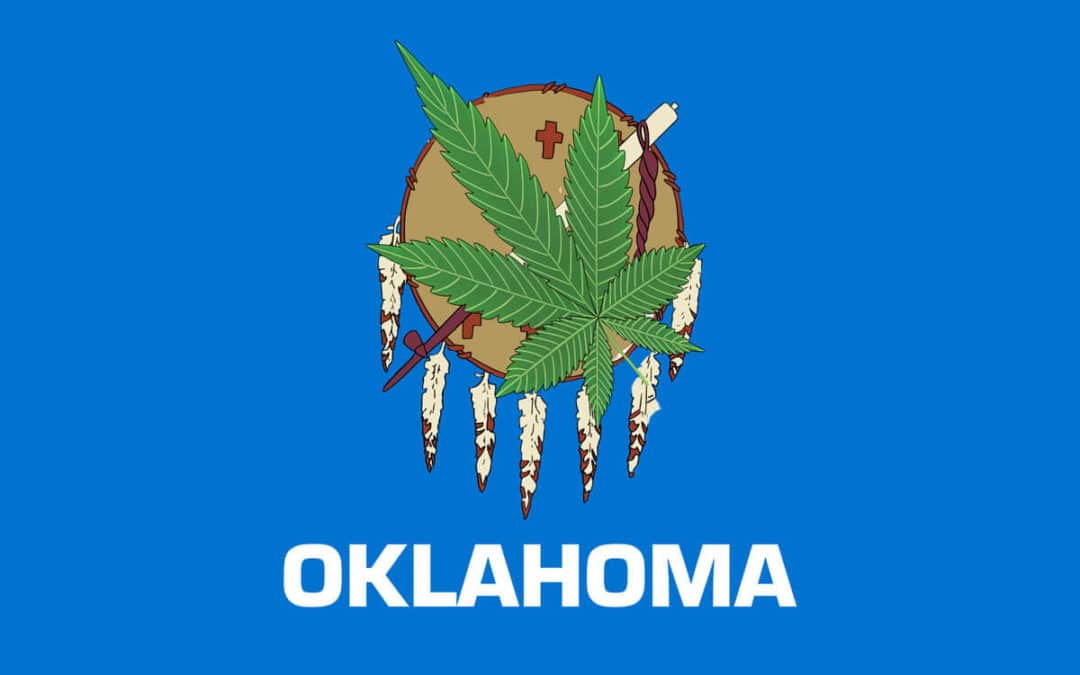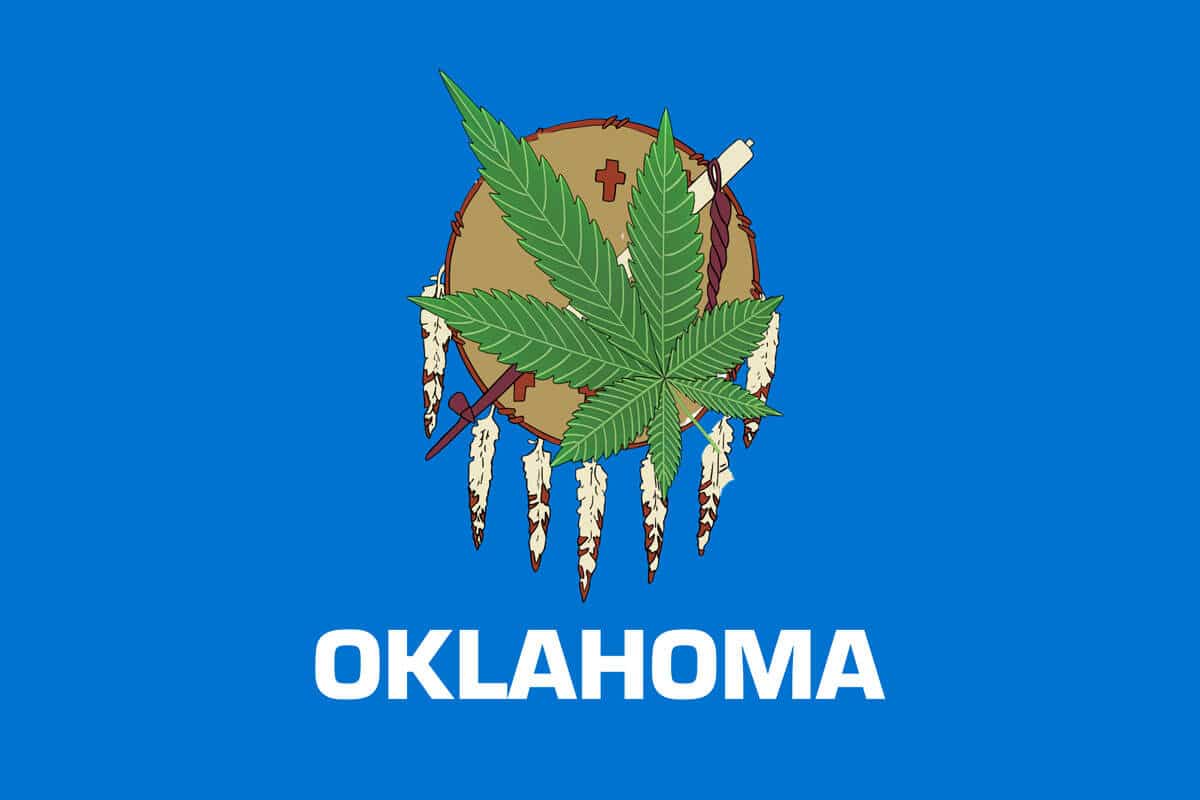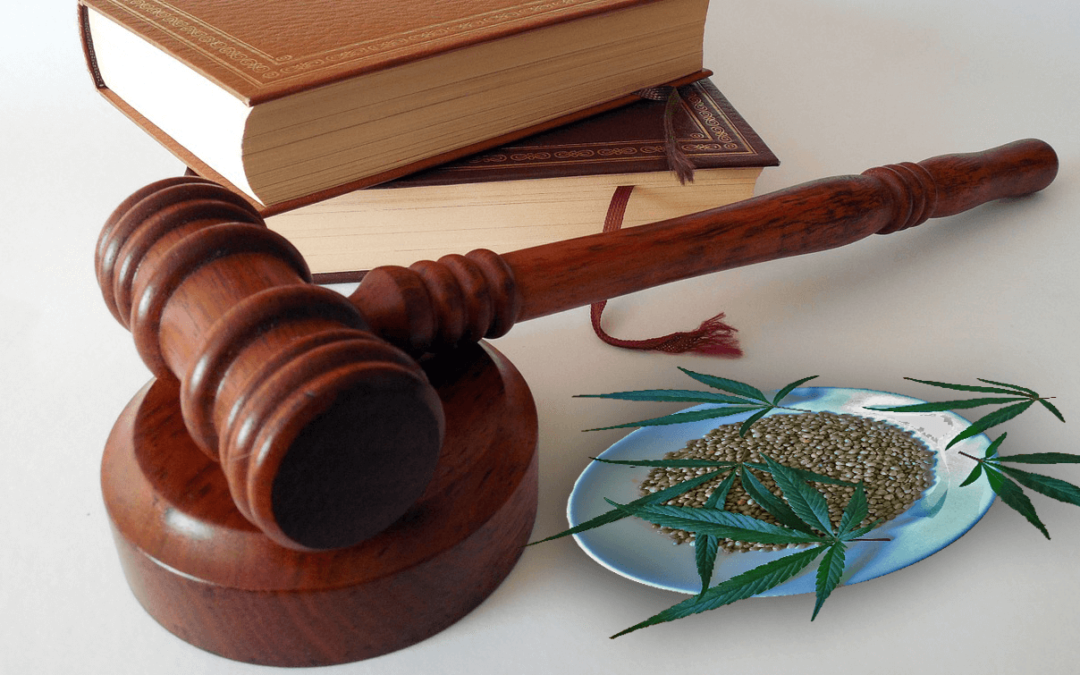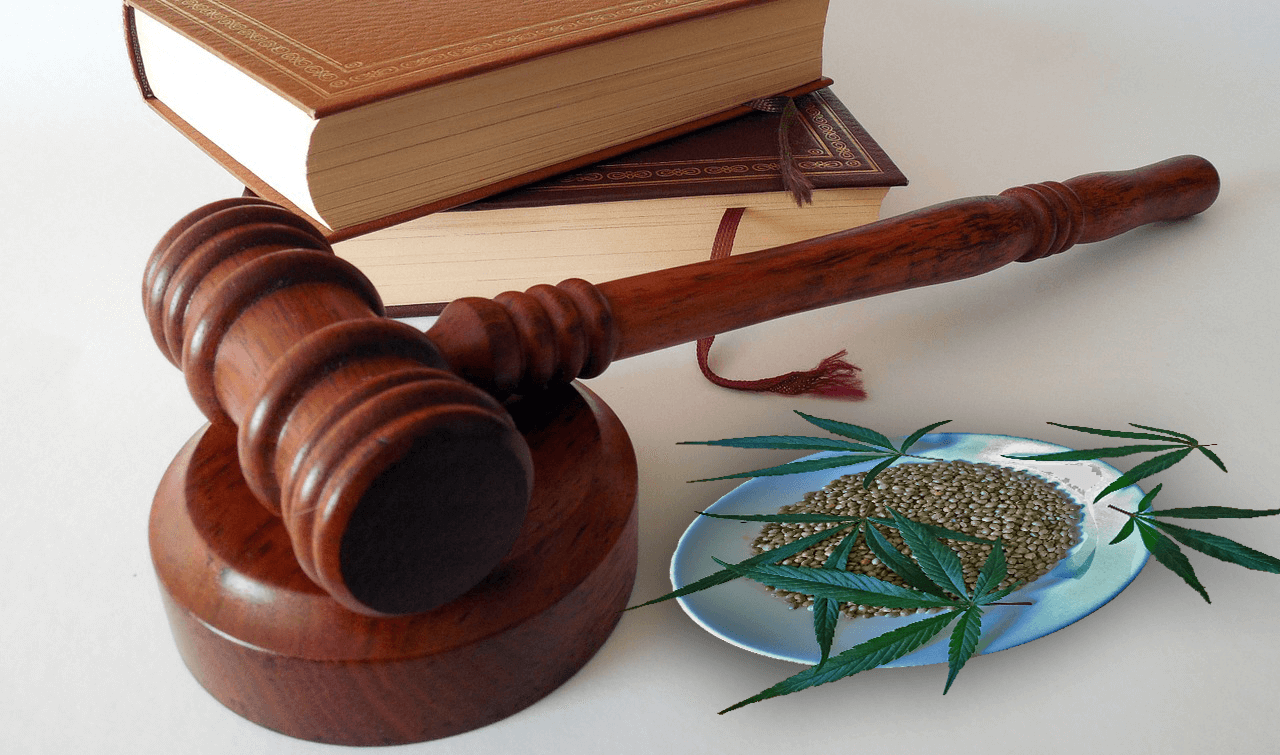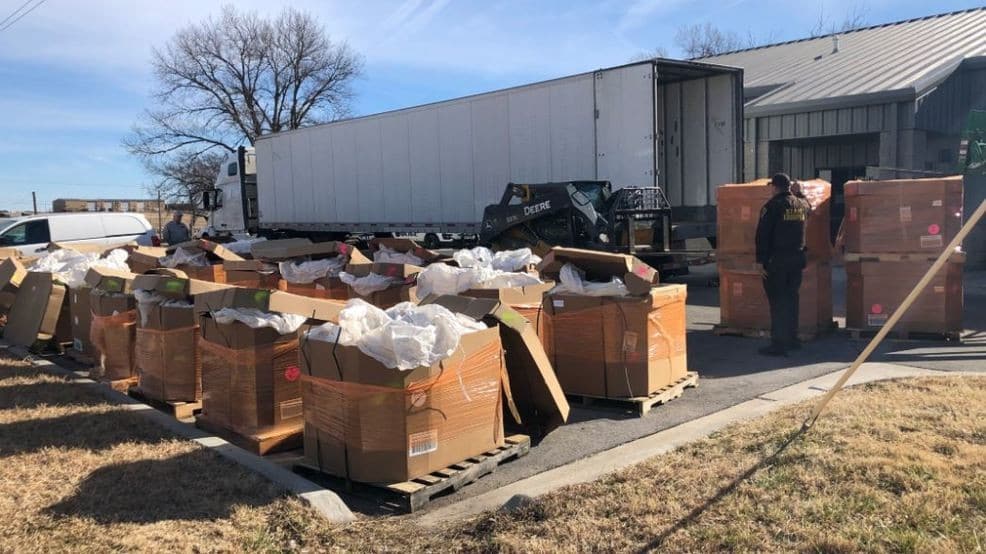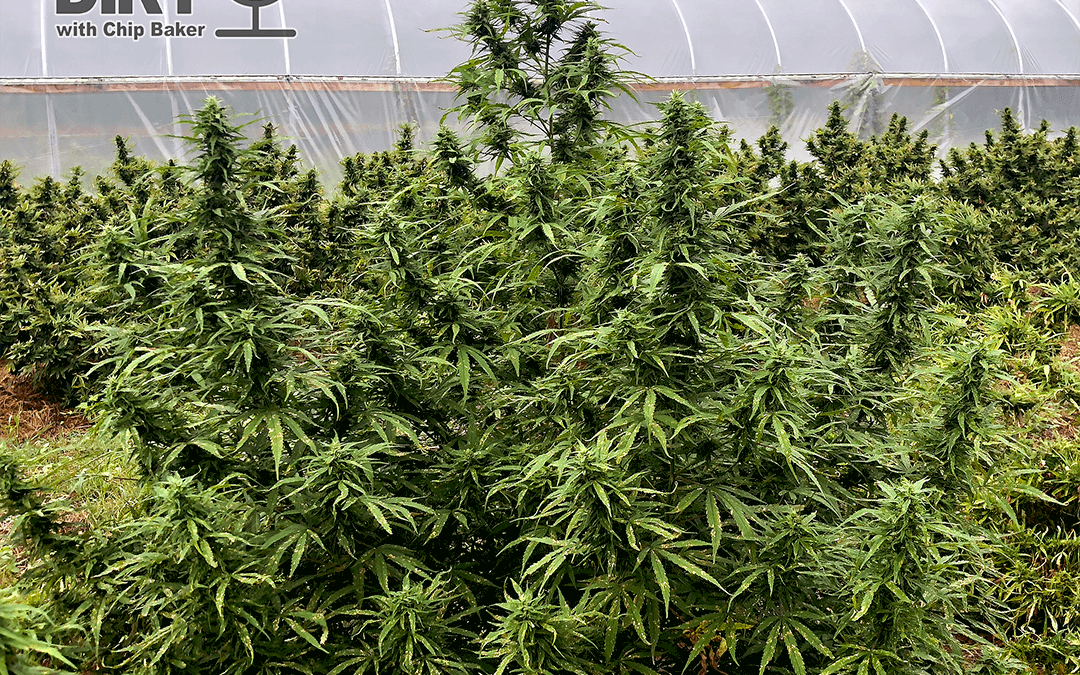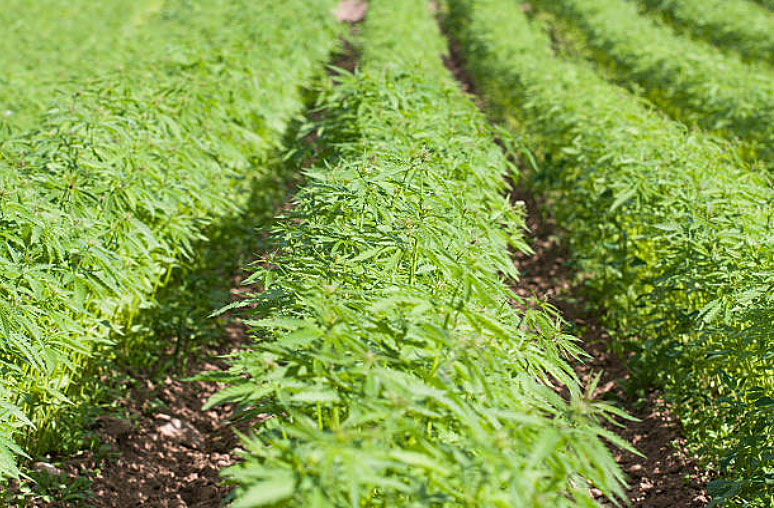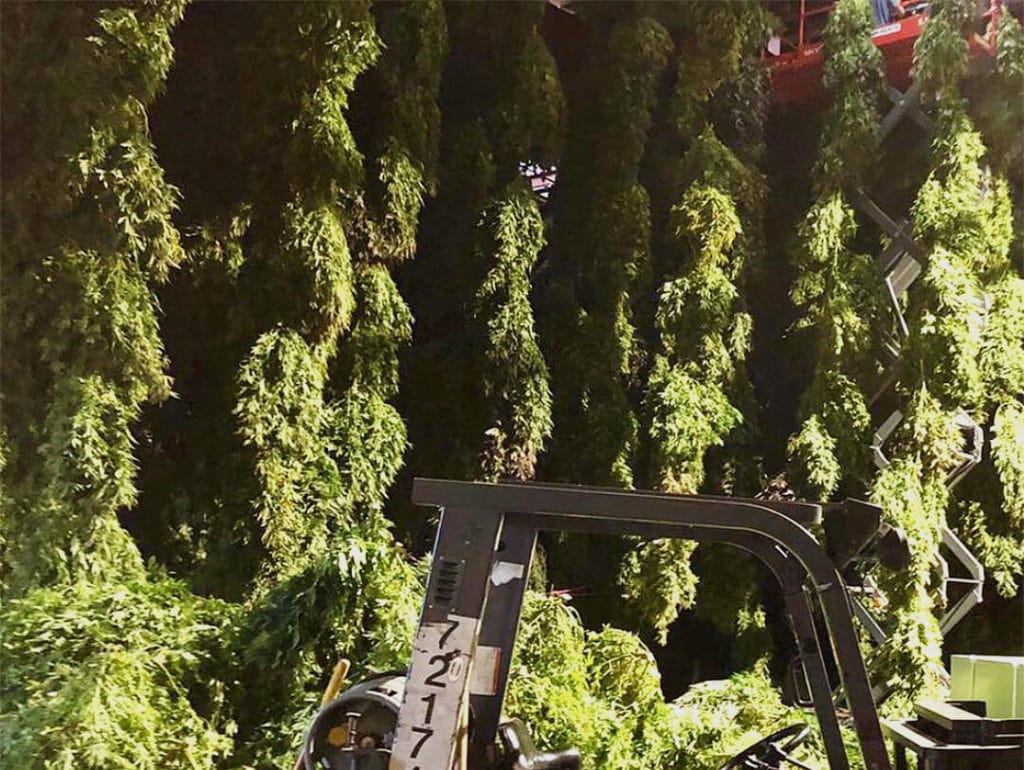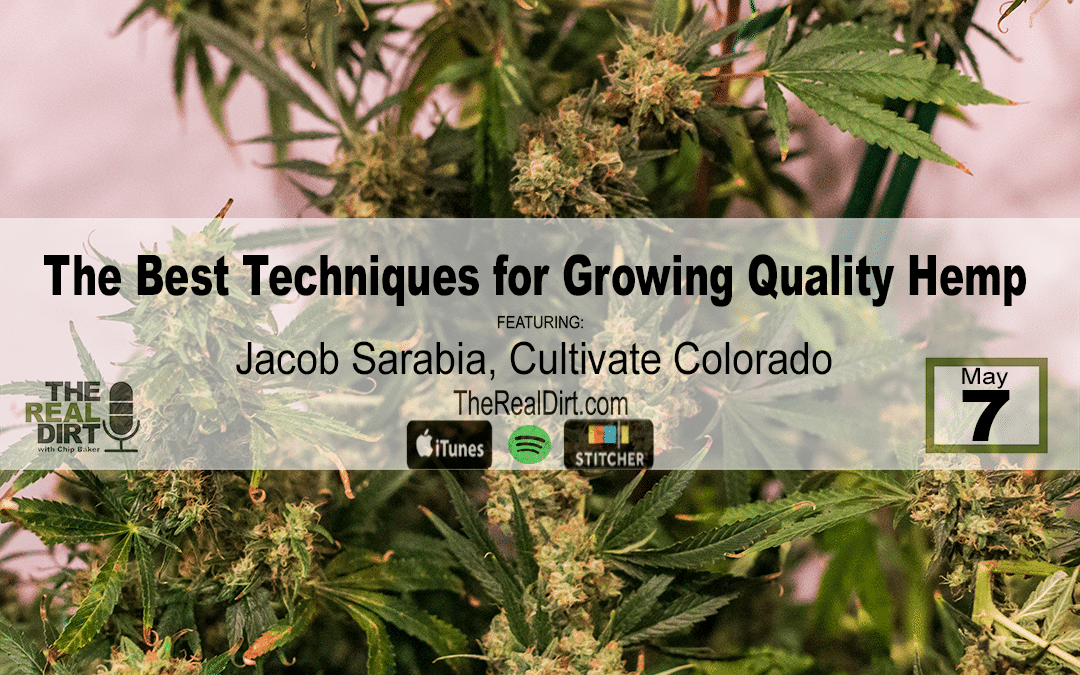
Top Tips for Growing Hemp
Podcast: Play in new window | Embed
Subscribe: Google Podcasts | Spotify | iHeartRadio | Stitcher | Email | TuneIn | RSS
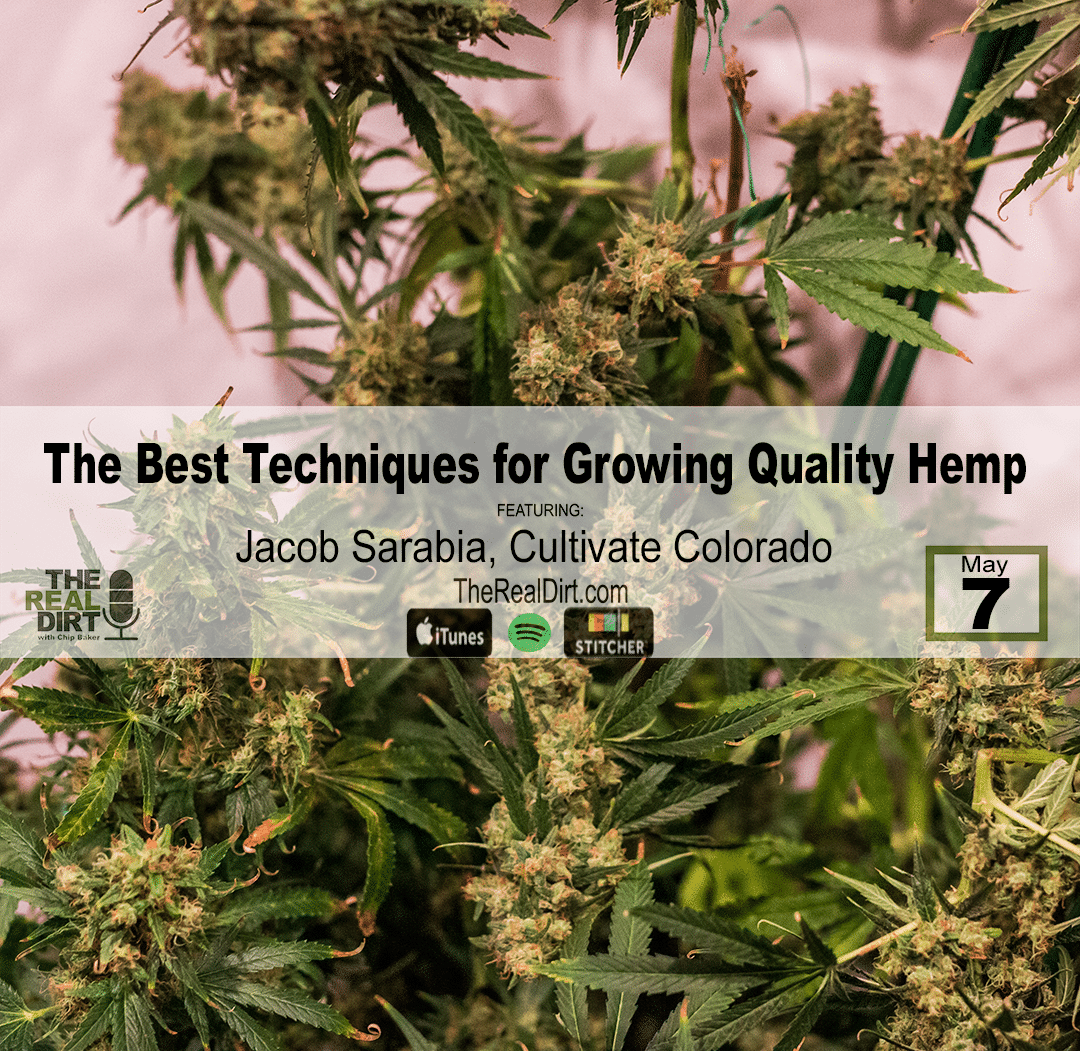
At the time of recording for this episode, outdoor planting season is just a couple weeks away. But when it comes to growing hemp, you can’t treat it like any other row crop.
If you’re in Colorado, you may have a little extra time before your plants are ready to move outside. For most of the country however, Mother’s Day weekend is also planting time.
Hemp is a durable plant. There’s a reason it was given the nickname “weed” back in the day. It would grow almost anywhere if a seed was put in the ground. But we’re not just trying to sprout feral hemp anymore, we’re trying to grow top-tier, CBD rich hemp.
From picking between clones or seeds to the gear you need to get ahead, this week’s episode of The Real Dirt has you covered.
Plan Your Plant
Consider this: hemp and cannabis are the same thing, just slightly different species genetically. But hemp is not grown the same way as cannabis, although it can be when grown indoors.
Farming isn’t easy, and if you’re trying to grow industrial hemp on a large scale with little to no field crop experience, you’re in for trouble. With cannabis, you’re planting a few plants into their own pots on a relatively small plot of land. Hemp on the other hand can cover acres and acres, and staying on top of thousands of plants isn’t easy.
From planting too early and getting hit with the final frost in Colorado, to running out of water halfway through the season because you weren’t prepared, lack of preparation can be the end of your hemp grow before it even starts. This is why it’s essential that you check the weather regularly to ensure you don’t plant at a bad time, as well as ensuring you don’t end up running short on supplies.
It’s always better to over-prepared and have some left over than to run out and lose your plants.
Irrigation is ESSENTIAL
The bigger your field, the more water it will need. Unless you have a massive staff that ensures each plant gets watered every day, you’re going to need irrigation.
It is the more expensive option at first, but it pays itself off quick. Instead of hand watering each plant, spending hours on one task in the field, all you need is a reservoir and drip-lines connected to it. After a little education and a couple hours of set up, you’ll be able to save hundreds of hours you’d otherwise be spending watering.
Frankly, even if you have a smaller hemp grow indoors or outdoors, irrigation can still be extremely useful. One of irrigation’s biggest benefits is that it removes the risk of human error and overfeeding.
Quality of Genetics
You can do everything right and still end up with a poor quality product. If you don’t strive to find and use quality genetics, you will fall behind the competition. With the legal hemp industry still so young, it can be very difficult for farmers transitioning into the industry to know where to look for quality genetics.
As these first few seasons of growing hemp come and go, people will breed some pretty great hemp genetics. Services like the International Hemp Exchange are one of the main companies connecting breeders to buyers, but just like the cannabis industry early on, you’ll either get your genetics through your growing circles, or pay a hefty price for quality.
In This Week’s Episode
Jacob Sarabia is the head of sales for Cultivate Colorado, the largest grow store in the country, as well as an avid cannabis grower and connoisseur. He’s also gotten into growing hemp over the last year.
In this week’s episode Chip and Jacob puff on a couple joints while they talk about their experiences with hemp so far, the techniques they’ve picked up, how growing hemp is different from growing cannabis and more.
If you want some professional advice on growing hemp that stands out, listen to the episode now.

